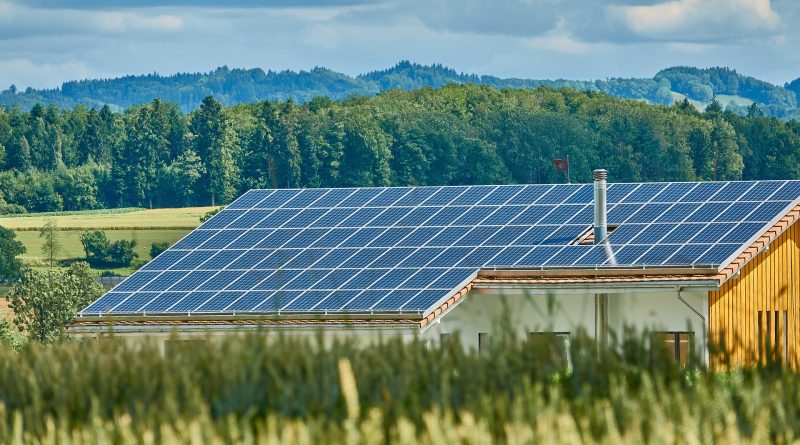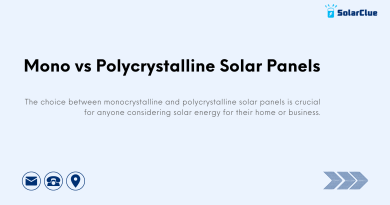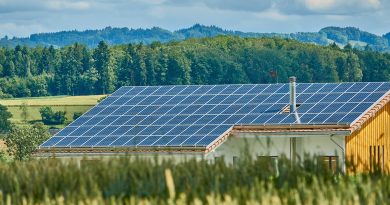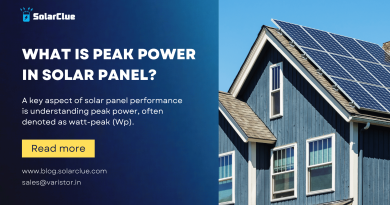Solar Panel Cost: Understanding the Breakdown
Table of Contents
Solar Panel Cost: An In-Depth Analysis of Investing in Clean Energy
As the world continues to grapple with the adverse effects of climate change, the demand for renewable energy sources is at an all-time high. Solar power, in particular, has gained significant popularity due to its abundant availability and clean nature. However, potential investors often have concerns about the cost of installing solar panels. In this blog, we will dive into the intricacies of solar panel cost, exploring both the upfront expenses and long-term benefits associated with this investment.
Understanding the Upfront Costs
The initial cost of installing solar panels can vary depending on several factors. The size of the system you need, the type of panels you choose, and the location of your property can all impact the overall cost.
Size of the System
The size of a solar panel system is measured in kilowatts (kW). A higher kW system can generate more electricity, but it also comes with a higher price tag. On average, a residential solar panel system ranges from 3 to 9 kW, with larger systems enabling homeowners to generate surplus energy.
Type of Panels
Solar panels are made using various technologies, such as monocrystalline, polycrystalline, and thin-film. Monocrystalline panels are the most efficient but also the most expensive. Polycrystalline panels offer a lower cost alternative, while thin-film panels are the most affordable option. Consider your budget and desired efficiency when selecting the type of panels that best suit your needs.
Location of the Property
The geographic location of your property plays a significant role in determining the cost of solar panel installation. Solar potential is highest in regions with ample sunlight, which can reduce the number of panels required. Additionally, local regulations and available solar incentives may impact the upfront expenses.
Evaluating Long-Term Savings
While the upfront costs may appear intimidating, it is crucial to consider the long-term savings and benefits that solar panels provide. By generating your own electricity, you can reduce or even eliminate your reliance on the utility grid, resulting in considerable financial savings.
Energy Bill Savings
The most significant financial benefit of solar panel installation is the reduction in electricity bills. Solar energy allows homeowners to produce electricity for their own consumption, offsetting the need to purchase energy from the grid. Depending on the size of your system and the amount of sunlight in your area, you can potentially experience significant savings on your energy bills.
Return on Investment (ROI)
Solar panels are not only an environmentally friendly choice but also a sound financial investment. The return on investment (ROI) for solar panels is typically achieved within 5 to 7 years. This means that the money saved on electricity bills over that period can cover the initial installation cost. After the ROI period, the savings continue to accumulate, resulting in increased financial benefits.
Government Incentives and Tax Credits
Numerous governments worldwide provide incentives and tax credits to encourage homeowners to switch to solar energy. These incentives can significantly reduce the upfront costs and improve the overall ROI of solar panel installations. Research and reach out to local government entities to explore the available incentives in your area.
Considering Additional Costs
While the cost of solar panel installation is a significant factor, it’s crucial to consider other potential expenses associated with maintaining and operating your solar system.
Maintenance and Repairs
Solar panels are renowned for their durability, requiring minimal maintenance. However, regular cleaning and inspection are necessary to ensure optimal performance. Additionally, in rare cases, panels may require repair or replacement due to damage from extreme weather conditions. It is recommended to include potential maintenance and repair costs in your financial calculations.
Battery Storage Systems
Many homeowners opt to install battery storage systems alongside their solar panels. These systems allow excess energy to be stored for later use, even during nighttime or cloudy days. While battery storage systems enhance energy independence, they can add extra costs to your solar panel investment. Consider whether the benefits of backup power outweigh the additional expenses.
Conclusion
Illuminate your path to solar savings with SolarClue®’s breakdown of solar panel costs. We consider factors like panel type, efficiency, brand, and installation to provide a transparent understanding of your solar investment. SolarClue® explains cost differences among monocrystalline, polycrystalline, and thin-film panels, helping you choose the most cost-effective option. We empower you to compare and select panels based on brand preferences. Evaluate the impact of warranty and lifespan, and choose panels with favorable terms.
Frequently Asked Questions
SolarClue® breaks down the overall cost of solar panels by considering factors such as panel type, efficiency, brand, and installation. We provide consumers with a transparent understanding of their solar investment to facilitate informed decision-making.
SolarClue® elucidates cost differences among solar panel types. We assist consumers in choosing the most cost-effective option—be it monocrystalline, polycrystalline, or thin-film—based on their energy needs and budget constraints.
SolarClue® explains the impact of solar panel efficiency on cost. We guide consumers in balancing efficiency with affordability for their specific solar projects, ensuring an optimal combination for their energy goals.
SolarClue® offers insights into cost variations among solar panel brands. Our platform empowers consumers to make informed choices by comparing and selecting panels that align with their preferences and requirements.
SolarClue® emphasizes the role of warranty and lifespan in solar panel cost considerations. We assist consumers in evaluating and selecting panels with favorable warranty terms and durability for long-term value.
SolarClue® explains how the installation process influences solar panel costs. We recommend best practices to consumers for optimizing installation costs without compromising quality and safety, ensuring a cost-effective yet reliable solution.
SolarClue® highlights government incentives, tax credits, and financing options impacting upfront solar panel costs. We guide consumers in leveraging these opportunities for a more affordable solar investment, aligning with their financial preferences.
SolarClue® offers a breakdown of costs, including the solar inverter and other essential components. We ensure consumers have a comprehensive understanding of the total investment required for a solar power system, avoiding surprises in their financial planning.
SolarClue® stays informed about the latest solar panel developments. We ensure consumers have access to cutting-edge products and features, providing a reliable source for information on the most innovative solar panel technologies.
SolarClue® assists consumers in navigating solar panel cost considerations. We offer personalized consultations and recommendations tailored to their unique energy needs and budget constraints, ensuring a customized and informed solar journey.




